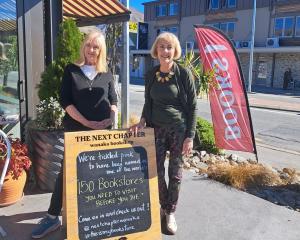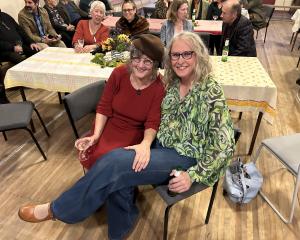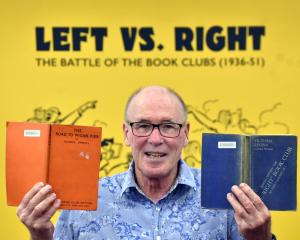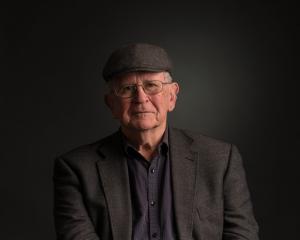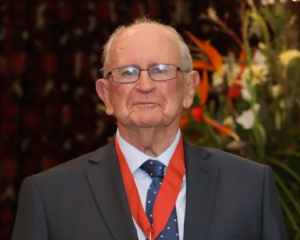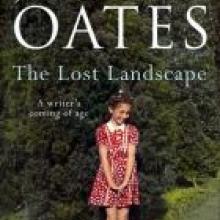
Although officially a memoir, many of the chapters in The Lost Landscape have been previously published in magazines, journals and books.
Because of this, there is an eclectic mix of styles and forms.
The most unusual example is the first major chapter, narrated by a Rhode Island Red chicken, Joyce Carol Oates' ''happy chicken'' and favourite pet.
It's disconcerting to begin with, but gradually, because of her skills as a writer, the device works, and life as a little girl on the small farm where she spent her childhood is revealed as one of childhood innocence surrounded by the dangers and deaths inevitable in that environment.
This juxtaposition of surface lightness and hidden darkness occurs throughout the memoir, as it does in Oates' fiction.
One day, the chicken she has treasured and treated as a beloved companion is missing, and ''her throat is raw with calling him''.
We readers guess its fate but, sheltered by her mother from distressing sights, she doesn't witness happy chicken's being ''thrown onto the chopping block to be decapitated with a single swift blow of the bloodstained axe, wielded by a muscled arm'' and is merely left weeping with a sense of loss and unease.
The first chapter also introduces Oates' extended family: the ''muscled arm'' bringing death to chickens belongs to her grandmother, a formidable woman who prefers to speak in her native Hungarian.
Grandfather, who speaks better, but still broken, English, is a tough no-nonsense man whose teasing she dreads.
In contrast to her mother's parents is Blanche, her father's mother, a gentle provider of books and encouragement.
The Oates family lived with the Hungarian grandparents on their small farm for all of her childhood.
The men of the family had to work in a nearby town's factories to supplement the subsistence living.
''I guess we were poor but it didn't seem that way. Somehow, we managed.''
The quote comes from the end of the book when she's paying homage to her parents.
In spite of witnessing horrific violence as children, in spite of their horizons being restricted by poverty and circumstance, they provided Oates and her brother Fred with a loving, stable environment.
Her memoir celebrates their integrity and hard work; the ''landscape, now vanishing, that continues to nourish like an underground spring''.
Joyce Carol Oates is a prolific and esteemed writer, so to share parts of her life felt like a privilege.
Born in 1938, she writes of many social and historical changes.
Those born within a decade of her birth will find much in her memoir with which to identify.
Her childhood memories resonated with me, because of so many shared experiences: living in a country community, attending a one-room school, being a solitary and compulsive reader of similar books.
But you wouldn't need to be part of her generation to enjoy The Lost Landscape.
A chilling account of academic life in a prestigious American university, accounts of unsettling friendships, pertinent comments on life and living make for compulsive reading.
And written in an easily accessible way.
• Patricia Thwaites is a retired Dunedin schoolteacher.

